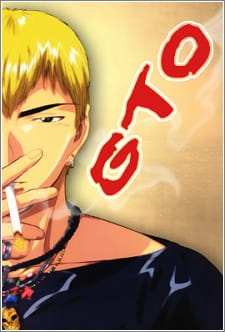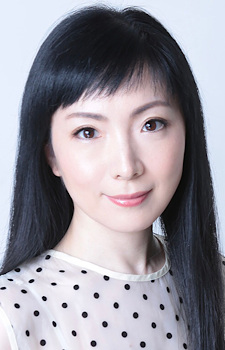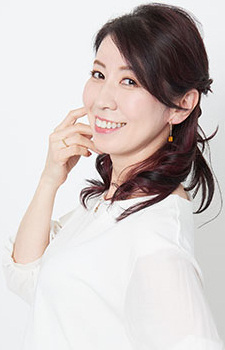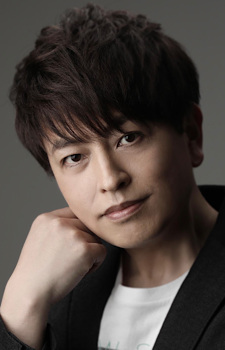
Great Teacher Onizuka
Summary: Twenty-two-year-old Eikichi Onizuka—ex-biker gang leader, conqueror of Shonan, and virgin—has a dream: to become the greatest high school teacher in all of Japan. This isn't because of a passion for teaching, but because he wants a loving teenage wife when he's old and gray. Still, for a perverted, greedy, and lazy delinquent, there is more to Onizuka than meets the eye. So when he lands a job as the homeroom teacher of the Class 3-4 at the prestigious Holy Forest Academy—despite suplexing the Vice Principal—all of his talents are put to the test, as this class is particularly infamous.
Due to their utter contempt for all teachers, the class' students use psychological warfare to mentally break any new homeroom teacher they get, forcing them to quit and leave school. However, Onizuka isn't your average teacher, and he's ready for any challenge in his way.
Bullying, suicide, and sexual harassment are just a few of the issues his students face daily. By tackling the roots of their problems, Onizuka supports them with his unpredictable and unconventional methods—even if it means jumping off a building to save a suicidal child. Thanks to his eccentric charm and fun-loving nature, Class 3-4 slowly learns just how enjoyable school can be when you're the pupils of the Great Teacher Onizuka.
[Written by MAL Rewrite]
Description
Twenty-two-year-old Eikichi Onizuka—ex-biker gang leader, conqueror of Shonan, and virgin—has a dream: to become the greatest high school teacher in all of Japan. This isn't because of a passion for teaching, but because he wants a loving teenage wife when he's old and gray. Still, for a perverted, greedy, and lazy delinquent, there is more to Onizuka than meets the eye. So when he lands a job as the homeroom teacher of the Class 3-4 at the prestigious Holy Forest Academy—despite suplexing the Vice Principal—all of his talents are put to the test, as this class is particularly infamous.
Due to their utter contempt for all teachers, the class' students use psychological warfare to mentally break any new homeroom teacher they get, forcing them to quit and leave school. However, Onizuka isn't your average teacher, and he's ready for any challenge in his way.
Bullying, suicide, and sexual harassment are just a few of the issues his students face daily. By tackling the roots of their problems, Onizuka supports them with his unpredictable and unconventional methods—even if it means jumping off a building to save a suicidal child. Thanks to his eccentric charm and fun-loving nature, Class 3-4 slowly learns just how enjoyable school can be when you're the pupils of the Great Teacher Onizuka.
[Written by MAL Rewrite]
Available At
Warning: Array to string conversion in /home/hianime.me.uk/public_html/anime.php on line 243
Array
Warning: Array to string conversion in /home/hianime.me.uk/public_html/anime.php on line 243
Array
Great Teacher Onizuka Pictures
Great Teacher Onizuka Review
Great Teacher Onizuka — Twenty-two-year-old Eikichi Onizuka—ex-biker gang leader, conqueror of Shonan, and virgin—has a dream: to become the greatest high school teacher in all of Japan. This overview is intentionally spoiler-free and focuses on tone and intent rather than plot specifics.
Thematically, It sits firmly within Comedy conventions as a TV work and has garnered attention (MAL score: 8.68). This work explores character dynamics, tonal shifts, and the interplay between narrative ambition and execution. The story's pacing and tonal choices are crafted to complement the central ideas, often emphasizing atmosphere and emotional truth over explicit exposition. The show's ability to evoke a consistent mood — whether melancholic, exuberant, or contemplative — is a recurring strength, and the scenes are constructed so viewers can infer stakes without needing explicit spoilers.
Characterization is a core pillar here. Protagonists and supporting figures are written with distinct motivations and narrative roles; even when archetypal, the series invests in small behavioral details that make choices feel earned. Character arcs are handled with an eye for gradualism: development often arrives through incremental beats rather than abrupt, expository shifts. The interactions between characters create texture, and relationships are used to illuminate both personal flaws and larger thematic concerns.
On the visual front, production values play a significant role. The animation quality varies by sequence but frequently showcases thoughtful direction and composition. Background art, framing, and color palettes are used deliberately to support tone — quieter scenes favor muted palettes while action or heightened emotional beats employ brighter, more kinetic visuals. Direction choices, such as camera movement and shot selection, often elevate scenes beyond their raw script, creating moments that linger in the viewer's mind.
The soundscape — score, incidental music, and sound design — complements the visual language. Music cues are placed to maximize emotional resonance without manipulating the audience with melodrama; this restraint often leads to more authentic emotional payoff. Sound design punctuates key moments, and when the series leans on silence, those quieter moments are given weight by measured audio choices.
Pacing and structure are handled with craft. Episodes are arranged to build tension and release methodically, and the narrative rarely rushes through important emotional beats. That said, the deliberate pacing may feel slow to viewers who prefer faster plot turnover; the reward is greater nuance and an accumulation of meaning across the series. Accessibility is generally good — one can appreciate surface-level pleasures, while repeat or attentive viewing reveals additional layers.
No title is without flaws. Occasional unevenness in subplots or variable animation across episodes can be distracting. Some tonal shifts might feel abrupt if you expect uniformity; others will argue that those shifts are purposeful. These are worth noting, but they seldom undercut the larger achievements of the work.
In sum, Great Teacher Onizuka offers a rich experience for viewers who value character-driven storytelling, considered visual design, and a soundtrack that supports rather than overwhelms. For fans of Comedy, this is an especially rewarding watch. It's recommended for those who appreciate layered narratives and artistry in animation, and best approached with patience and attention to nuance.
Characters & Voice Actors

Aizawa, Miyabi
Main

Aizawa, Miyabi
Main

Aizawa, Miyabi
Main

Aizawa, Miyabi
Main

Aizawa, Miyabi
Main

Aizawa, Miyabi
Main

Fuyutsuki, Azusa
Main

Fuyutsuki, Azusa
Main

Fuyutsuki, Azusa
Main

Fuyutsuki, Azusa
Main

Fuyutsuki, Azusa
Main

Kanzaki, Urumi
Main

Kanzaki, Urumi
Main

Kanzaki, Urumi
Main

Kanzaki, Urumi
Main

Kanzaki, Urumi
Main

Kanzaki, Urumi
Main

Kanzaki, Urumi
Main

Kikuchi, Yoshito
Main

Kikuchi, Yoshito
Main
Staff

Hagino, Ken
Producer

Katsumata, Hideo
Producer

Abe, Noriyuki
Director, Storyboard, Recording Engineer

Date, Hayato
Episode Director, Storyboard

Hatakeyama, Shigeki
Episode Director, Storyboard

Mizuno, Kazunori
Episode Director, Storyboard

Nakagawa, Satoshi
Episode Director

Odaka, Yoshinori
Episode Director

Tsuru, Toshiyuki
Episode Director, Storyboard, Key Animation

Yamauchi, Tomio
Episode Director

Coryn, William
Script

Sogo, Masashi
Script, Series Composition

Murayama, Kiyoshi
Storyboard

Hyde
Theme Song Lyrics

Ishinomori, Shoutarou
Theme Song Lyrics

L'Arc~en~Ciel
Theme Song Performance

Okuda, Miwako
Theme Song Performance

Ooe, Senri
Theme Song Arrangement, Theme Song Composition, Theme Song Lyrics

Porno Graffitti
Theme Song Performance

Shindou, Haruichi
Theme Song Lyrics